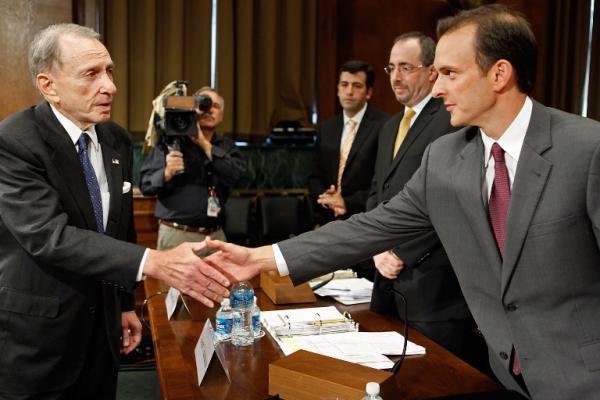2015 WADA code adds four-year bans for first offence
New rules prohibit association with sanctioned support staff



Changes to the World Anti-Doping Code coming into effect on January 1 will add a four-year ban to the sanctions possible for a first-time offence, according to a summary of the changes on the US Anti-Doping Agency website. Riders will also be prohibited from associating with sanctioned or convicted coaches, trainers, physicians or other athlete support personnel. The changes were approved last year.
"The 2015 code is designed to even better protect the rights of clean athletes and the integrity of competition," according to the USADA summary. "With a focus on targeting current issues in the fight against doping, the 2015 code is simultaneously tougher for those who intentionally cheat and easier for those who follow the rules and compete clean."
UCI President Brian Cookson recently told Cyclingnews that the rule prohibiting association with convicted or sanctioned staff is a crucial reform for the health of cycling.
"One of the issues is that we have an ongoing problem in our sport with entourage and people inside the team who have a history and back story in doping and problems of an ethical nature," Cookson said in an exclusive interview with Cyclingnews.
"This is something that I have asked the Cycling Independent Reform Commission to look at and make recommendations," he said. "One of the things I want to get out of that is that we find a way of assessing who is a fit and proper person to be involved in our sport. This is something that the new WADA code from 2015 will help us with, this principal of association with undesirable people, if I can put it that way."
Other changes highlighted in the summary include reduction in the numbers of months from 18 to 12 that an athlete can have three whereabouts failures, an earlier 5 a.m. availability option for the daily 60-minute testing window, and a worldwide increase to six months for the time period an athlete must be in a testing pool before returning to competition from retirement. Currently, only returning athletes under USADA's jurisdiction are required to be in a testing pool for six months.
Research by the World Anti-Doping Agency showed a strong consensus among stakeholders, and in particular athletes, that intentional cheaters should be ineligible for a period of four years, according to the summary. The research also revealed support for more flexibility in sanctioning, especially in cases where the athlete can demonstrate that he or she was not cheating.
The latest race content, interviews, features, reviews and expert buying guides, direct to your inbox!
Athletes can receive a four-year ban after a first offense for the presence, use, attempted use or possession of a prohibited substance or prohibited method, according to the summary. In addition, any athlete who refuses to participate in, evades or tampers with the sample collection process may also be subject to a four-year ban.
Further changes to the 2015 code include a change in the length of time samples will be stored in WADA-accredited labs from eight years to 10, the statute of limitations for anti-doping violations has increased from eight years to 10, and therapeutic use exemptions must now be mutually recognized by federations and national anti-doping organizations around the world.

